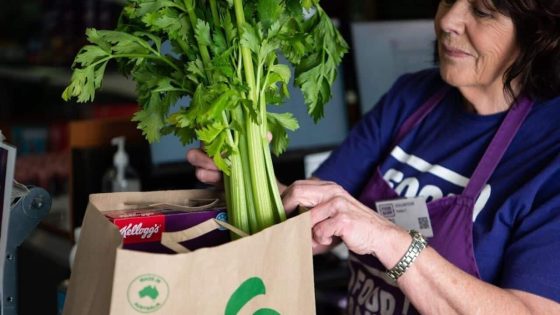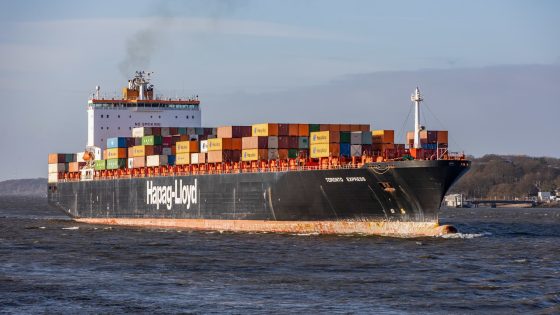The cost of living crisis has caused a drastic increase in the number of Australians relying on charities to put food on the table.
in the 12 months to July last year, according to Foodbank Australia’s latest Hunger Report.
At the same time, Australia is binning 7.6 million tonnes of produce each year.
On Tuesday, the Opposition’s charities spokesperson Dean Smith tabled a private senator’s bill aimed at addressing both problems.
The Western Australian senator’s bill proposes the establishment of a tax incentive to compensate farmers, wholesalers, and other businesses for the costs associated with donating surplus food to charities.
Smith said a food donation tax incentive was “more needed than ever”.
“We’re seeing farmers ploughing food back into the ground because it isn’t commercially viable to donate it, meanwhile food relief charities are fighting to feed Australian households at crisis point — this policy is an obvious solution to both,” he said.
“A tax offset, as proposed in the bill, will allow them to claim costs such as transport, food storage, and packaging to act as a powerful incentive to change food waste into food donations.”
How would a food donation tax incentive work?
Smith’s proposal was inspired by the National Food Donation Incentive, which was originally developed by Foodbank Australia and its partner organisations, with economic modelling done by KPMG.
Foodbank Australia’s chief operating officer Sarah Pennell said the introduction of similar initiatives had proven “extremely successful” in countries like Canada and France.
“We believe the tax system is missing a trick because the tax treatment of food that is dumped or written off is exactly the same as food that is donated,” she said.
“Fruit and veg have the highest wastage levels at all points in the supply chain, basically — and fresh fruit and veg is what we need in the food relief sector because they’re the healthiest, best foodstuffs to be able to provide to people.”
Establishing a food donation tax incentive was also a key recommendation of the House of Representatives agriculture committee’s inquiry into food security in 2022.
Smith’s bill proposes a tiered system where smaller food businesses would receive higher tax offsets than larger ones.
A company with a turnover of $20 million or less would get a 45 per cent offset, while those with turnovers above $50 million would receive 35 per cent.
The offset for businesses with turnovers between $20 million and $50 million would be 40 per cent.
“The tax offset is capped at the lower of $5 million or a percentage of the costs incurred through food donations based on that company’s aggregate turnover,” Smith said.
He said while the current version of the bill would allow for major supermarkets to claim a tax offset, he was “very confident” they wouldn’t.
“Their food donations are an important part of how they maintain a strong social licence in the community,” he said.
100 million extra meals
Australia’s annual food waste is estimated to cost the economy $36.6 billion each year.
Smith said the total cost of his proposal would depend on the final scope of the bill and businesses’ uptake of the offset.
“The current design of the bill is that it run for three years with a review mechanism, and it does include some integrity measures to make sure that people don’t abuse the scheme,” he said.
“The parliamentary budget office has estimated it could be as modest as $40 million, which is a very good use of taxpayer funds when measured against the huge social benefit that’s delivered.”
Pennell said it was ultimately “smart policy” that could be “transformative” for the food relief sector.
“The actual cost in foregone revenue to the government is not significant, but it will put a spotlight on an area of sustainability, i.e. reducing food waste and seeing more people benefit from the food that we produce,” she said.
“That spotlight will help to change practices amongst businesses.”
Modelling based on Foodbank’s initial tax incentive proposal suggested 100 million extra meals could be provided to hungry Australians each year by 2030, Pennell said.
“That’s a lot. That’s more than we are doing now. It’ll be more than doubling the total meal count through food relief,” she said.
“We do a monthly kind of check-in and we’re seeing more than half of all households saying it’s getting harder to put food on the table, and that’s in spite of the fact that there’s been a bit of quiet in terms of increasing interest rates and so on.”
“We don’t see this getting any better in the short term — and we are not meeting the need now.”
Smith’s bill is expected to be debated in the Senate on Wednesday, before being referred to a committee for inquiry.



